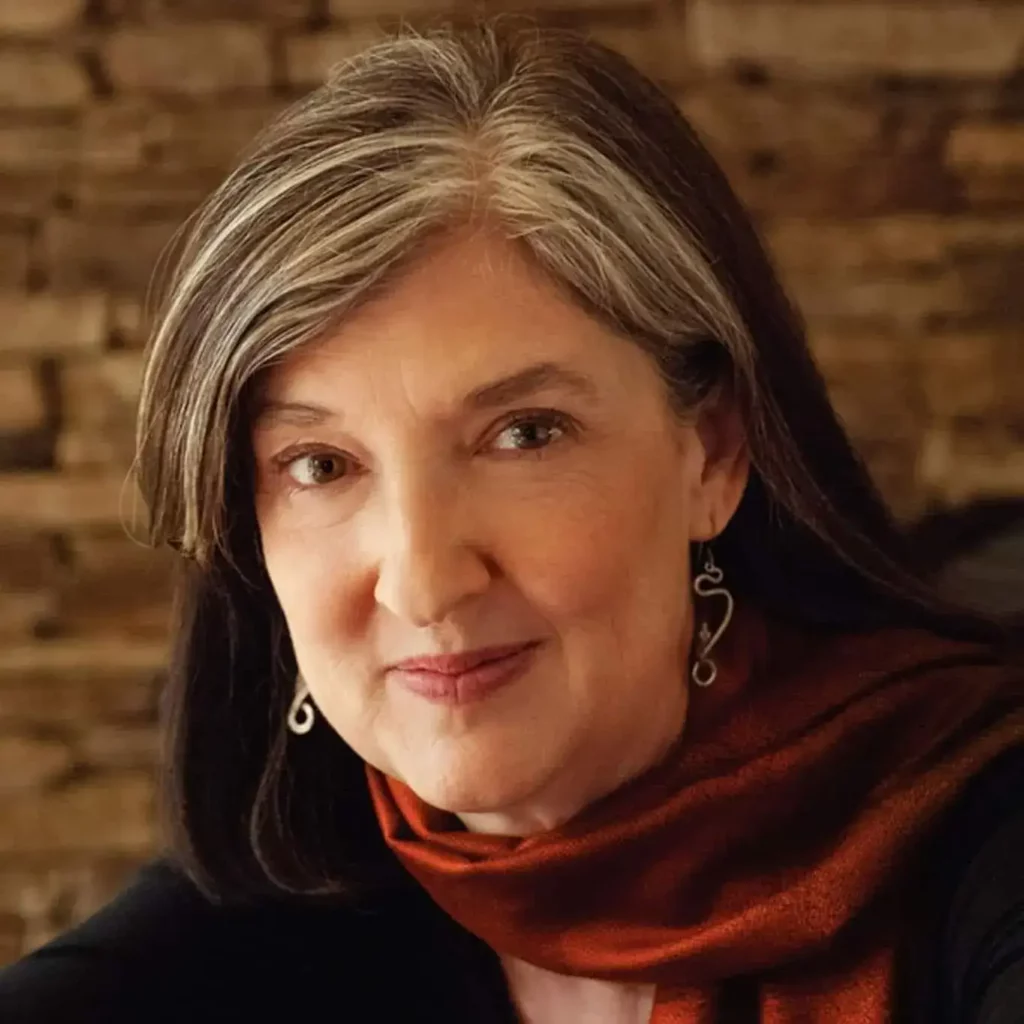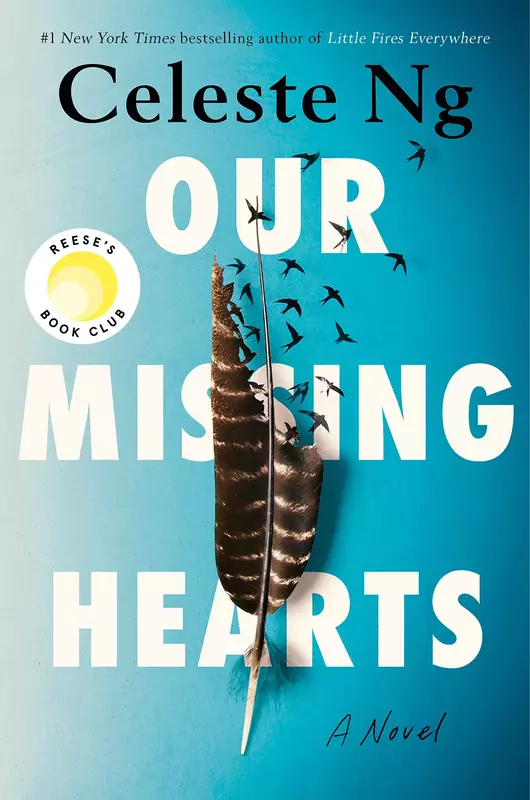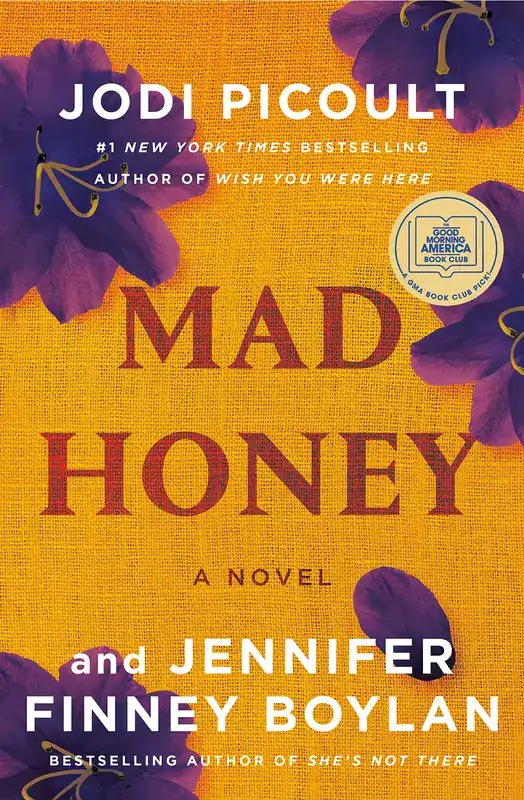This post may contain affiliate links. Read more here.
Book club questions for Demon Copperhead by Barbara Kingsolver takes an in-depth look at the relationship between our choices, social or economic privilege and the idea of destiny.
Demon Copperhead is one of the best books I’ve read in 2022. There are so many layers and much to discuss. All of the main characters will stick with me for a long time.
Book Quotes | Book Club Questions
The Synopsis
Set in the mountains of southern Appalachia, Demon Copperhead is the story of a boy born to a teenaged single mother in a single-wide trailer, with no assets beyond his dead father’s good looks and copper-colored hair, a caustic wit, and a fierce talent for survival.
Relayed in his own unsparing voice, Demon braves the modern perils of foster care, child labor, derelict schools, athletic success, addiction, disastrous loves, and crushing losses. Through all of it, he reckons with his own invisibility in a popular culture where even the superheroes have abandoned rural people in favor of cities.
Many generations ago, Charles Dickens wrote David Copperfield from his experience as a survivor of institutional poverty and its damages to children in his society. Those problems have yet to be solved in ours. Dickens is not a prerequisite for readers of this novel, but he provided its inspiration.
In transposing a Victorian epic novel to the contemporary American South, Barbara Kingsolver enlists Dickens’ anger and compassion, and above all, his faith in the transformative powers of a good story. Demon Copperhead speaks for a new generation of lost boys, and all those born into beautiful, cursed places they can’t imagine leaving behind.
About the Author
Barbara Kingsolver, born in 1955 and raised in rural Kentucky, is a celebrated author known for her insightful storytelling and deep connection to nature. With degrees in biology from DePauw University and the University of Arizona, she embarked on a journey that led her to various corners of the world, including England, France, Africa, and South America.

Since 1985, Kingsolver has been a prolific writer, contributing to the literary world with a diverse range of works, including novels, short stories, essays, and poetry. Her most renowned book, The Poisonwood Bible, gained international acclaim and was a finalist for the Pulitzer Prize and the Orange Prize.
Kingsolver’s writing often delves into themes of social and environmental issues, reflecting her background in biology and her passion for the natural world. In 2000, she received the National Humanities Medal, a testament to her significant contributions to the arts. Some of her other works include Demon Copperhead, Unsheltered, and Prodigal Summer.
Apart from her literary accomplishments, Kingsolver is also recognized for her advocacy and service. She established the Bellwether Prize for Fiction, supporting new literary voices, and later transformed it into the PEN/Bellwether Prize for Socially Engaged Fiction.
Currently residing on a farm in southern Appalachia with her husband, Steven Hopp, who teaches environmental studies, Kingsolver books have been translated into multiple languages and have become essential reading in high schools and colle
Book Club Questions for Demon Copperhead
1. Consider the epigraph from Charles Dickens’ DAVID COPPERFIELD that begins the novel: “It’s in vain to recall the past, unless it works some influence upon the present.” What do you understand this to mean? How is this idea relevant to the novel?
2. What might Demon mean when he claims that “the born of this world are marked from the get-out, win or lose”? To what extent is this true? What is a destiny? What’s the relationship between social or economic privilege and destiny?
3. What might explain Demon’s attraction to superheroes, and in particular the “superhero rescue”? In what ways can such a fantasy be helpful? How might such stories be limiting or even harmful to people who are suffering?
4. In what ways are Demon and his boyhood friend Maggot similar or different? What might explain their strong friendship? Why does it change over time? What powerful difficulties different from Demon will Maggot encounter as he gets older?
5. What is important about drawing for Demon? What does this skill afford him at different stages of his life? What does it mean to be creative? How might this be an important part of any life, even if one is not an artist?
6. In what ways is Demon’s mother troubled? What might explain what Demon calls her “bad choices,” and how does he navigate his love and anger with her? Does the reader’s sympathy for her shift as we learn about her history in the foster care system?
7. Why is the city so shocking and difficult for Demon? What might it mean that “there was no outside anywhere”? Despite its problems and poverty, what did the rural environment of Lee County offer Demon and others that was valuable? What might it mean that spending time in the woods “can set you back on your haunches, in a good way”? What’s the difference between “country poor” and “city poor”?
8. In what ways are various social workers helpful or not for Demon? What is Miss Barks able to offer him? What are the limitations of even well-intentioned case workers? In what ways are the flaws systemic? What disturbing social values about children are revealed by a debilitated and dangerous foster care system?
9. Why is Tommy Waddles important to Demon when they meet at Mr. Crickson’s farm? What does he demonstrate and provide later when he works at the newspaper?
10. What makes Fast Forward such a powerful charmer of people? What might explain why the people he mistreats so badly stay loyal to him? In what ways is he “a monster”?
11. At one point Demon realizes that “being mad was the one thing holding [him] together.” What is he angry about? In what ways might anger be important? What determines when it becomes harmful or destructive to oneself or others? How can anger best be eased?
12. In what various ways is Betsy Woodall, Demon’s grandmother, different from the other adults in Demon’s life? What does she value in life? Why might she have chosen to only help raise and educate girls?
13. In what ways does Demon’s life change once he moves in with Angus and her father and begins middle school? Why is teacher and guidance counselor Mr. Armstrong particularly valuable?
14. Coach claims that most of the boys of Lee County “just go looking for trouble because it’s what they know.” What does this mean? Why can it be so difficult to avoid self-destructiveness and make changes for the better?
15. What arguments does Mr. Armstrong make about stereotypes of various kinds, based on class, race and culture? Why have he and his wife chosen to stay in southern Appalachia?
16. What powers have influenced the economic and industrial history of Lee County and surrounding areas? How have they shaped these characters’ ideas about work, education and self-worth? What does the novel reveal about limited opportunities and structural poverty in Appalachia, and how they are typically interpreted by outsiders to the region?
17. What is the “wanting disease” that Demon suffers? What does he mean when he says, “I had everything and still went hungry”? Why does Demon feel unseen? What role might this play in the way he falls for Dori, and his claim that there’s a fine line between love and addiction?
18. Discussing the prescription painkiller epidemic in Lee County and across the country, June says, “They did this to us.” Who is she saying is responsible? What are the various mechanisms and powers that created such widespread pharmaceutical harm and abuse? In what ways were many of the people of Lee County particularly vulnerable to such addictions?
19. What is trauma? What are the many forms of it experienced by the characters of the novel? What are the various effects and symptoms of trauma? What are powerful and effective ways to begin healing from it?
20. Beyond addiction recovery, what will be involved in Demon’s efforts to build and sustain a healthy life? What does emotional rehabilitation look like? How does a person develop self-worth if they were rarely made to feel worthy?
Additional Recommendations
Hope you enjoyed book club question for Demon Copperhead! Here are some more recommendations along with their synopses.
Our Missing Hearts by Celeste Ng
Twelve-year-old Bird Gardner lives a quiet existence with his loving but broken father, a former linguist who now shelves books in a university library. His mother Margaret, a Chinese American poet, left the family when he was nine years old without a trace. Bird knows to not ask too many questions, stand out too much, or stray too far. For a decade, his family’s life has been governed by laws written to preserve “American culture” in the wake of years of economic instability and violence. To keep the peace and restore prosperity, the authorities are now allowed to relocate children of dissidents, especially those of Asian origin, and libraries have been forced to remove books seen as unpatriotic.
Bird has grown up disavowing his mother and her poems; he doesn’t know her work or what happened to her, and he knows he shouldn’t wonder. But when he receives a mysterious letter containing only a cryptic drawing, he is pulled into a quest to find her. His journey will take him back to the many folktales she poured into his head as a child, through the ranks of an underground network of librarians, into the lives of the children who have been taken, and finally to New York City, where a new act of defiance may be the beginning of much-needed change.
Our Missing Hearts is an old story made new, of the ways supposedly civilized communities can ignore the most searing injustice. It’s a story about the power—and limitations—of art to create change, the lessons and legacies we pass on to our children, and how any of us can survive a broken world with our hearts intact.
Mad Honey by Jodi Picoult and Jennifer Finney Boylan
Olivia McAfee knows what it feels like to start over. Her picture-perfect life—living in Boston, married to a brilliant cardiothoracic surgeon, raising their beautiful son, Asher—was upended when her husband revealed a darker side. She never imagined that she would end up back in her sleepy New Hampshire hometown, living in the house she grew up in and taking over her father’s beekeeping business.
Lily Campanello is familiar with do-overs, too. When she and her mom relocate to Adams, New Hampshire, for her final year of high school, they both hope it will be a fresh start.
And for just a short while, these new beginnings are exactly what Olivia and Lily need. Their paths cross when Asher falls for the new girl in school, and Lily can’t help but fall for him, too. With Ash, she feels happy for the first time. Yet at times, she wonders if she can trust him completely. . . .
Then one day, Olivia receives a phone call: Lily is dead, and Asher is being questioned by the police. Olivia is adamant that her son is innocent. But she would be lying if she didn’t acknowledge the flashes of his father’s temper in Ash, and as the case against him unfolds, she realizes he’s hidden more than he’s shared with her.
Mad Honey is a riveting novel of suspense, an unforgettable love story, and a moving and powerful exploration of the secrets we keep and the risks we take in order to become ourselves.
Happy reading! ❤️

